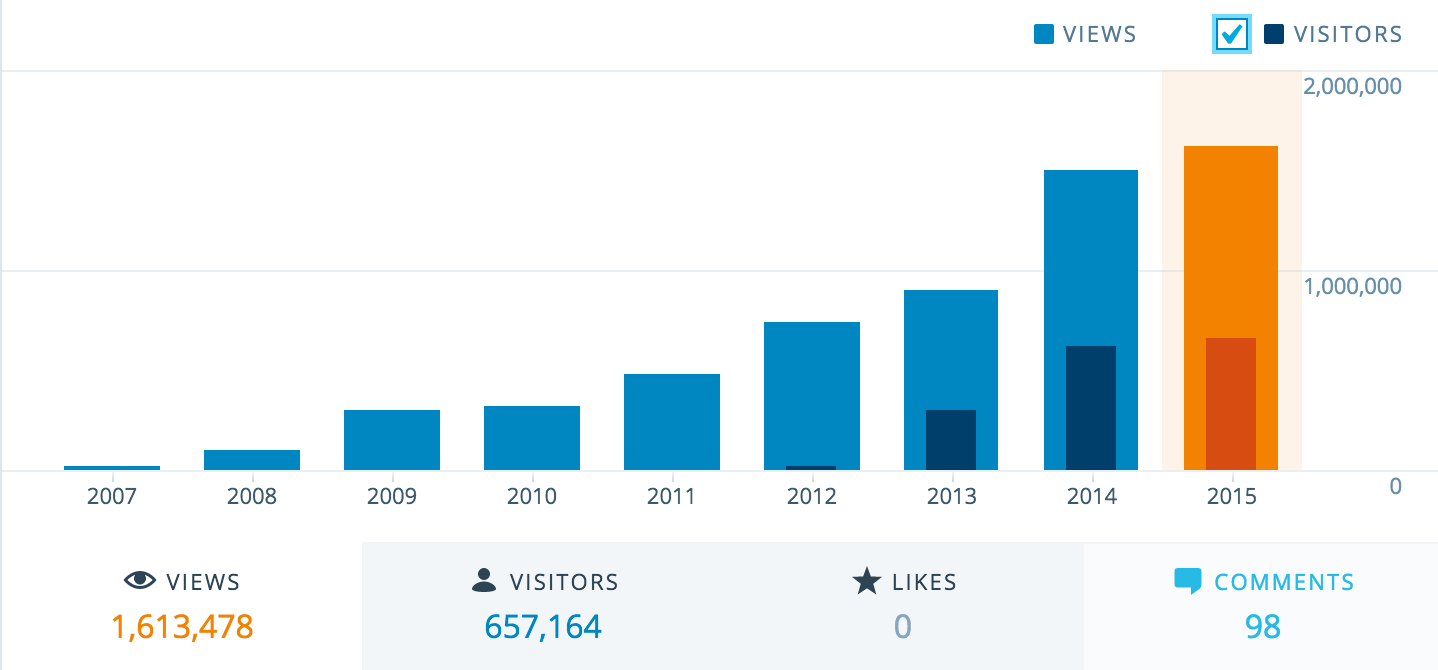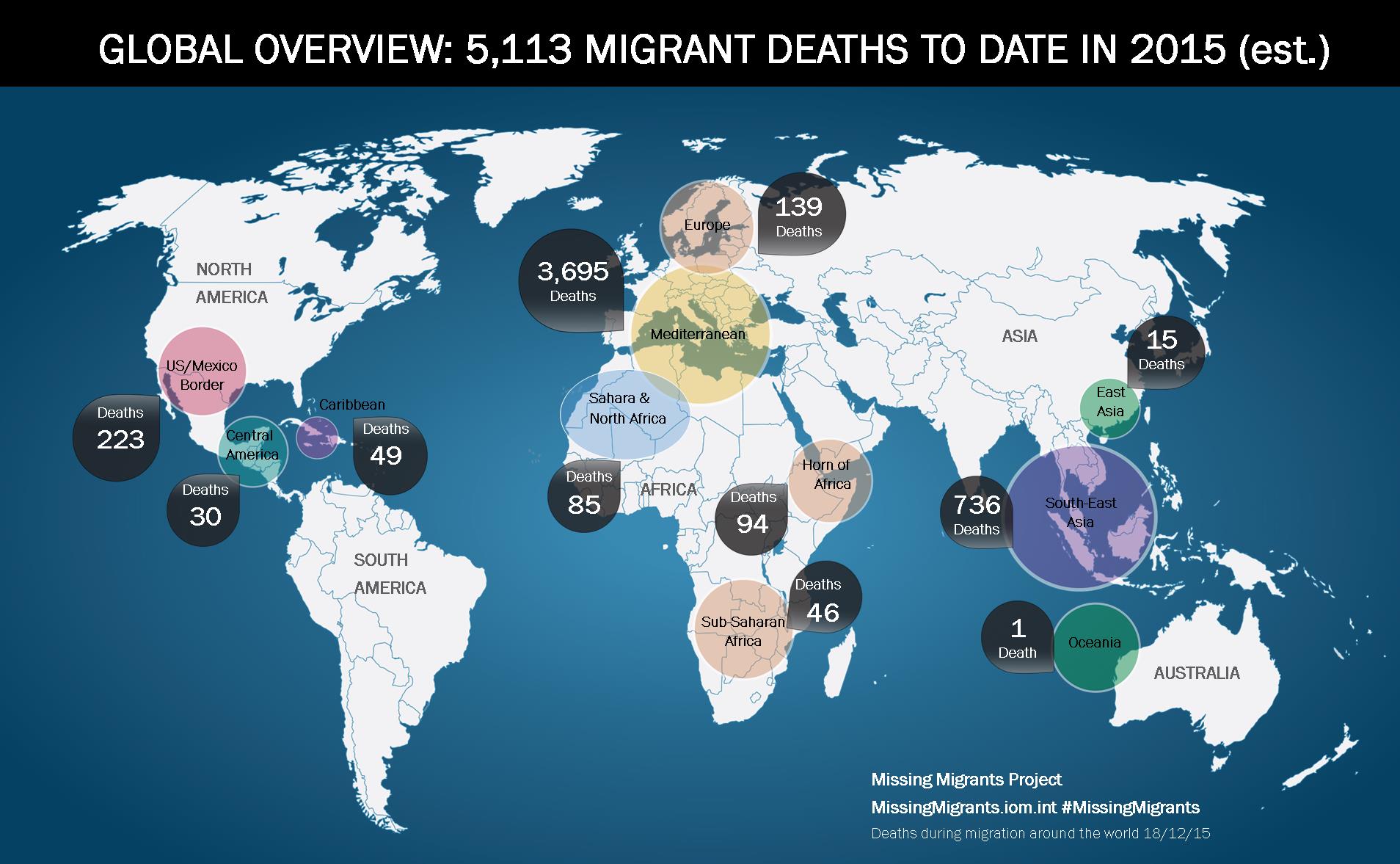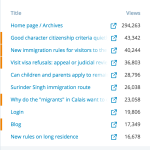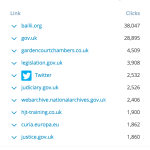- BY Colin Yeo

Review of immigration law in 2015
THANKS FOR READING
Older content is locked

A great deal of time and effort goes into producing the information on Free Movement, become a member of Free Movement to get unlimited access to all articles, and much, much more
TAKE FREE MOVEMENT FURTHER
By becoming a member of Free Movement, you not only support the hard-work that goes into maintaining the website, but get access to premium features;
- Single login for personal use
- FREE downloads of Free Movement ebooks
- Access to all Free Movement blog content
- Access to all our online training materials
- Access to our busy forums
- Downloadable CPD certificates
Table of Contents
ToggleHere on Free Movement
Here on Free Movement the year 2015 was the blog’s biggest so far, with 1,600,000 page views from 660,000 visitors. The total number of page views since the blog began in 2007 now stands at 5,900,000. Free Movement content is widely read and shared, with over 6,000 email subscribers, 7,500 Twitter followers and 1,870 Facebook page likes.

WordPress (the software on which the blog runs) produces a pretty annual report you can see here if interested (with bonus fireworks).
The top ten pages viewed this last year included some old favourites as well as some newer posts (see below, posts published this year marked with orange). With only a very limited number of immigration lawyers in the UK, Free Movement readership clearly continues to expand with members of the public affected by or interested in immigration law. The top 10 posts of 2015 reflect this trend: they are mainly of interest to members of the public. Similarly, ebook sales have done well since launched, with just short of 1,000 now sold. These offer a more in depth analysis and guide to specific legal issues and the ones on visit visas and Surinder Singh have proven popular.
Nevertheless, immigration lawyers and professionals remain highly engaged with Free Movement. There are now just short of 1,000 paying Tier 1 or Tier 2 members.
Immigration law in 2015
Immigration Act 2014
2015 was the year the unpleasant and un-British Immigration Act 2014 began to bite.
Following the scything of appeal rights, the number of appeals has fallen dramatically, although not so dramatically as the funding for appeals to be heard promptly. Huge appeal backlogs have built up, with waiting times exceeding 18 months.
The new rights of appeal remain very uncertain, with the Upper Tribunal all over the place on visitor rights of appeal and failing to engage with the issue of what may or may not trigger a right of appeal and how that issue should be resolved fairly and expeditiously in a given case.
The so-called “right to rent” scheme was piloted in the West Midlands, and the evaluation found clear evidence of discrimination against black and minority ethnic people. That is not stopping the Government rolling out the scheme nationally from 1 February 2016 and introducing new maximum sentences of five years imprisonment for defaulting landlords.
Detained Fast Track
The grossly unfair Detained Fast Track (DFT) was struck down by the courts in a series of legal victories. All DFT appeal decisions made under the new 2014 appeal procedure rules can be struck out on request and reheard and litigation is ongoing about whether this also applies to earlier appeal decisions under previous versions of the rules going back to the introduction of the DFT in 2003.
Despite this, the use of administrative immigration detention powers continued its seemingly unstoppable rise, increasing by 11%. Only half of those detained were actually removed from the UK, though, suggesting that immigration detention is used as a deterrent and a means of punishment rather than for actual removal of individuals. Enforced removals reached their lowest level yet and voluntary departures plummeted.
The Supremes
The Supreme Court upheld the legality of the Byzantine new-style non-sequential immigration rules but overturned the Court of Appeal’s decision on the Points Based System’s “evidential flexibility” policy. This was too late to help those who might have benefitted.
Their Lordships also upheld the pre-entry English language test rules, although it remains to be seen whether the policy on exceptions is widened as a consequence of the judgment.
In a major decision on statelessness and deprivation of citizenship, the Supremes dodged the wider questions and held instead that on the facts of the case the foreign government in question had not deprived their citizen of his citizenship at least until after the UK had done likewise, meaning that it was not the UK decision that had rendered him stateless.
The Supreme Court did however overturn the Home Office’s decision to put Jamaica on the “white list” of safe countries in asylum cases despite clear evidence of persecution of LGBT people.
Big picture
If we step back for a moment, though, the biggest immigration news of the year was the inexorable increase in immigration, with net migration reaching a record breaking 336,000 in the year ended June 2015. Migration will grow and grow in our ever more globalised world, no matter the King Canute commands of politicians unable to look away from the rear view mirror to the road ahead.
There will be plenty of work for immigration lawyers, although its nature may well change.
Part of this bigger picture of human movement has to be the scale of the ongoing tragedy in the Mediterranean. The grim total of migrants drowned on Europes shores in 2015 stood at 3,760 as of Boxing Day according to IOM’s Missing Migrant Project.

Looking ahead to 2016
The numbers game
The big news will be continued migration into the UK in the face of political and media hostility. That control of net migration remains beyond the control of any UK immigration law will continue to be unmentionable by politicians, but if the European and world economies improve relative to that of the UK, net migration may start to fall.
The number of asylum claims was historically very low in 2015 at around 29,000. This number will probably increase unless the situation in Syria improves; again, this remains beyond the control of any UK immigration law.
Where politicians can have an impact is on the treatment of migrants already within the UK. Here, the future looks grim.
New asylum plan
Theresa May has promised a new Asylum Plan for 2016. This is unlikely to affect the number of refugees reaching the UK but will be very bad news for those who do and their families. The language of “good refugees and bad refugees” has already been deployed and the reforms may well sever the link between refugee status and permanent settlement for most refugees.
We also know now that the Detained Fast Track will be replaced with something new. The process should at least be fairer than the last version, and a consultation on new procedure rules proposed by the Home Office will be coming soon.
Hostile environment
Once, the “hostile environment” was for terrorists. Then it was for serious and organised crime. Now, it is for migrants.
The hostile environment for migrants will grow ever more toxic, with imposition on landlords of a duty to conduct “papers, please” immigration checks on their tenants from 1 February 2016 and cuts to asylum support. Separated migrant children will suffer clear discrimination in the support available to them as the Immigration Act 2016 will deny them leaving care support from local authorities.
The number of immigration appeals against Home Office decisions will continue to fall. This will not, regrettably, be caused by an improvement in the quaility or humanity of decision making. The reduction in appeals will be caused by depriving migrants and their families of an effective remedy against incompetent and inhumane decisions.
Once the Immigration Bill becomes law and all immigration appeals can only be pursued from abroad this will cause massive inconvenience to migrants and their families. Jobs, homes and relationships will be lost, only for poor quality initial Home Office decisions eventually to be overturned on appeal.
There will be no relenting on the family-destoying immigration rules on spouses, parents or grandparents.
2016 is not a year to look forward to if you are a migrant or refugee, if you love one or if you are related to one.
SHARE



